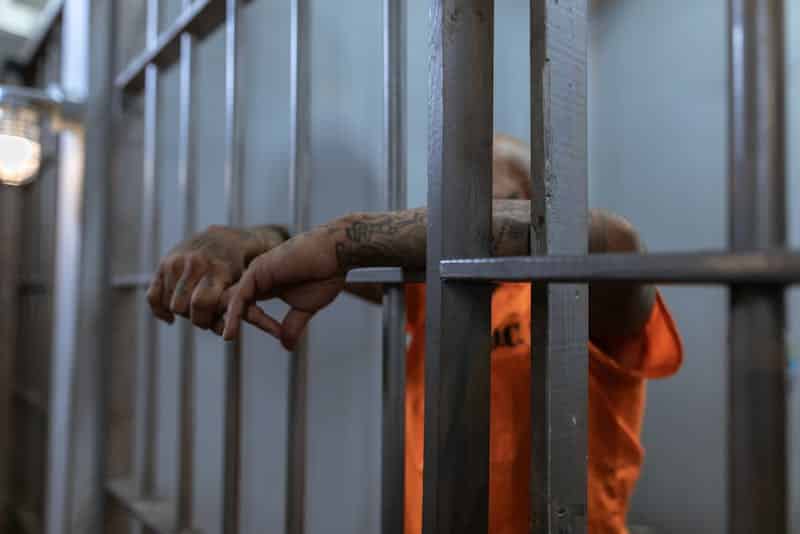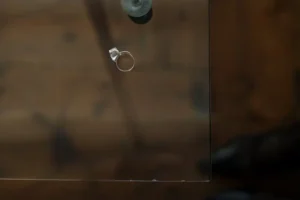A Detailed Exploration from The Renken Law Firm, Houston: Navigating Divorce with an Incarcerated Spouse
The path to divorce is never straightforward, and it becomes significantly more complex when one of the spouses is incarcerated. The Renken Law Firm in Houston recognizes the unique challenges and emotional toll that this situation can impose on individuals seeking to dissolve their marriage under such circumstances. Our comprehensive guide is designed to demystify the legal landscape, offering clarity and support through each step of the divorce process in Texas, especially when dealing with the added complexities of incarceration.
Deep Dive into Texas Divorce Laws
Texas’s legal framework accommodates various grounds for divorce, enabling a tailored approach that reflects the specifics of each case. Understanding the nuances of these laws is pivotal for anyone navigating through the dissolution of a marriage, particularly when it involves an incarcerated spouse.
Fault vs. No-Fault Divorce: A Strategic Choice
In Texas, the law delineates between fault and no-fault grounds for divorce, allowing petitioners to choose the approach that best suits their situation.
Fault Grounds for Divorce: When opting for a fault-based divorce, incarceration of a spouse presents a specific ground. This path is applicable under circumstances where the incarcerated spouse has been convicted of a felony, served at least one year in a state or federal penitentiary, and where the conviction stands final after the exhaustion of appeals. Opting for fault grounds can influence aspects of the divorce such as asset division and may have implications on custody arrangements, making it a strategic choice in certain scenarios.
No-Fault Divorce: The more commonly pursued route in Texas divorces is the no-fault option. This approach does not require proving wrongdoing by either party. Citing “insupportability” suffices, which refers to a discord or conflict of personalities that irreparably breaks down the marriage, eliminating any reasonable expectation of reconciliation. This option tends to be less contentious, potentially facilitating a smoother divorce process.
The Divorce Process in Detail: Navigating Through Incarceration
Divorcing an incarcerated spouse in Texas involves navigating through a set of legal procedures that are nuanced to address the unique challenges posed by the incarceration. Here’s a more detailed look into each step of the process, highlighting the intricacies and considerations to keep in mind.
Filing the Divorce Petition: A Strategic First Step
The initiation of the divorce process begins with the filing of a Petition for Divorce. This document outlines the basic information about your marriage, including grounds for divorce and any requests regarding child custody, property division, and other pertinent issues. For those with an incarcerated spouse, the location where you file plays a significant role. While typically, one would file in the county of their residence, if your spouse is incarcerated within Texas and you don’t meet residency requirements in your county, you must file in the county where the prison is located. This strategic filing is crucial as it determines the jurisdiction of your case, impacting various aspects of the divorce proceedings.
Serving the Petition: Adapting to Incarceration Constraints
Serving the divorce petition to an incarcerated spouse is not as straightforward as in other divorce scenarios. In-person service, the standard method, is replaced by a legal process tailored to the prison system. The Texas Department of Criminal Justice outlines specific protocols for serving legal documents to inmates. This process ensures that the rights of the incarcerated individual are upheld, providing them with the opportunity to respond to the divorce petition. The adaptation to these constraints is a critical component of ensuring that the divorce process moves forward without unnecessary delays.
The Waiting Period: A Mandatory Pause
Texas law mandates a 60-day waiting period from the time the divorce petition is filed to when the divorce can be officially granted. This cooling-off period is designed to give couples a chance to reconsider their decision to divorce. For those divorcing an incarcerated spouse, this waiting period remains a steadfast requirement, emphasizing the state’s approach to divorce as a significant legal and personal decision, regardless of the unique circumstances.
Default Judgment or Agreement: Paths to Resolution
The process diverges based on the response of the incarcerated spouse. If they agree to the divorce and sign the necessary documents, the divorce can proceed uncontested, often simplifying and speeding up the process. However, if the incarcerated spouse does not respond, you might seek a default judgment. This legal pathway allows the divorce to proceed based on the petitioning spouse’s terms, assuming the incarcerated spouse’s lack of response as an implicit agreement to the divorce terms proposed.
Court Hearing: Facilitating Participation
A court hearing may become necessary if there are disputes over custody, property, or if the judge requires further clarification. In these instances, the logistics of an incarcerated spouse’s participation are carefully considered. They may be transported to the courtroom, though security and logistical concerns make this rare. More commonly, participation occurs via telephone or video conference, depending on the facilities’ capabilities and the court’s policies. This accommodation ensures that the incarcerated spouse can participate in the proceedings, safeguarding their legal rights.
Important Considerations for a Smooth Process
Child Custody and Support: The court prioritizes the child’s best interests, considering the impact of a parent’s incarceration on custody and visitation rights. This process often involves detailed assessments and may require adjustments to standard custody arrangements.
Property Division: Despite the incarceration, the principle of equitable division of community property holds. However, the practical implications of incarceration on asset valuation and division can introduce complexities, requiring careful legal navigation.
Legal Assistance: Given the complexities and nuances of divorcing an incarcerated spouse, seeking legal assistance from experienced professionals is advisable. Legal guidance can help navigate the procedural intricacies, ensuring that your rights are protected and the divorce process is handled as smoothly as possible.
FAQs About Divorcing an Incarcerated Spouse in Texas
Can I file for divorce in Texas if my spouse is incarcerated?
Yes, you can file for divorce in Texas even if your spouse is incarcerated. Texas law allows you to file for divorce under both fault and no-fault grounds.
What grounds can I cite for divorcing an incarcerated spouse?
You have the option to cite fault grounds, specifically the imprisonment of your spouse for a felony conviction where they have been incarcerated for at least one year. Alternatively, you can file for a no-fault divorce, citing insupportability.
Where do I file for divorce if my spouse is incarcerated?
Typically, you would file the Petition for Divorce in the county where you reside. However, if your spouse is incarcerated in Texas and you don’t meet the residency requirements in your county, you may need to file in the county where the prison is located.
How do I serve divorce papers to an incarcerated spouse?
Divorce papers can be served to an incarcerated spouse through the legal process within the prison system. The Texas Department of Criminal Justice has specific procedures for serving legal documents to inmates.
Is there a waiting period for a divorce to be finalized in Texas?
Yes, there is a mandatory 60-day waiting period from the date the divorce petition is filed before a divorce can be finalized in Texas, regardless of the incarceration status of your spouse.
Can I get a default judgment if my incarcerated spouse does not respond?
Yes, if your incarcerated spouse does not respond to the divorce petition, you may be able to obtain a default judgment of divorce after fulfilling certain legal requirements and procedures.
What if my incarcerated spouse agrees to the divorce?
If your incarcerated spouse agrees to the divorce and signs the necessary documents, you can proceed with an uncontested divorce, which is generally simpler and faster.
How are child custody and support handled in divorces involving an incarcerated spouse?
Child custody, visitation, and support issues are addressed with the child’s best interests in mind. The court will consider various factors, including the incarceration, to make decisions that support the child’s welfare.
How is property divided in a divorce when one spouse is incarcerated?
Texas is a community property state, so all property acquired during the marriage is considered jointly owned and will be divided equitably upon divorce. The incarceration of your spouse does not change this principle, but it may impact the court’s decisions on the division of assets.
Should I seek legal assistance for divorcing an incarcerated spouse?
Yes, navigating a divorce when your spouse is incarcerated can be complicated. Seeking legal assistance from a firm experienced in such matters, like The Renken Law Firm, can help ensure that your rights are protected and the process goes as smoothly as possible.
Divorcing an incarcerated spouse in Texas is possible and may be initiated under either fault or no-fault grounds. The process involves specific steps tailored to address the unique circumstances of incarceration. At The Renken Law Firm in Houston, we understand the complexities involved in such cases and are here to provide the support and guidance you need. Our experienced attorneys are committed to ensuring that your divorce process is handled with the utmost care and professionalism, allowing you to start the next chapter of your life. For more information or to schedule a consultation, please contact us.
Renken Law Firm, PLLC
11500 Northwest Fwy #586
Houston, TX 77092
(713) 956-6767
Visit our website
View our Google Business Listing




